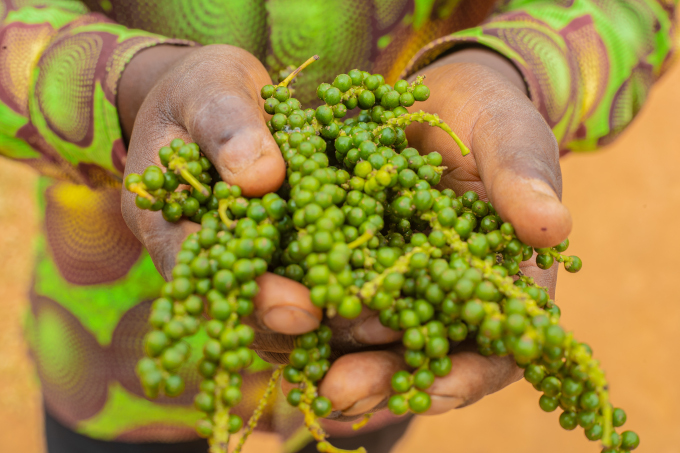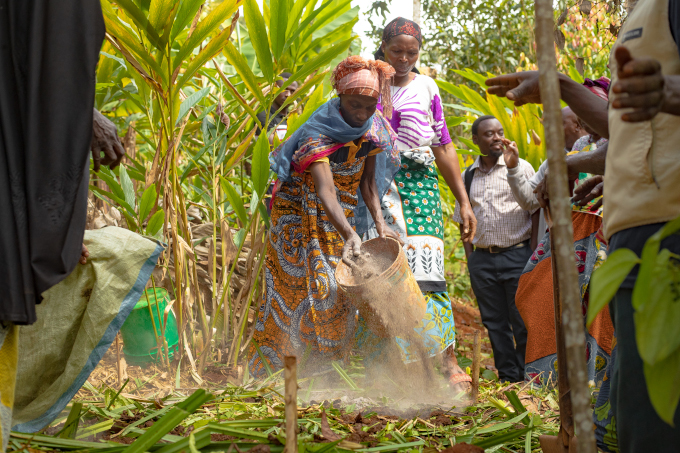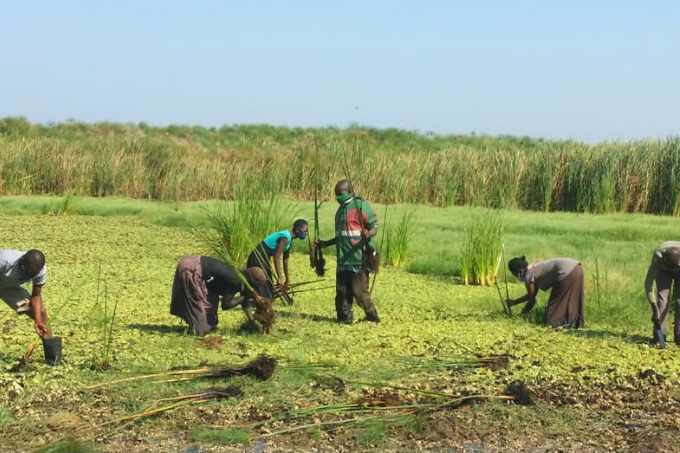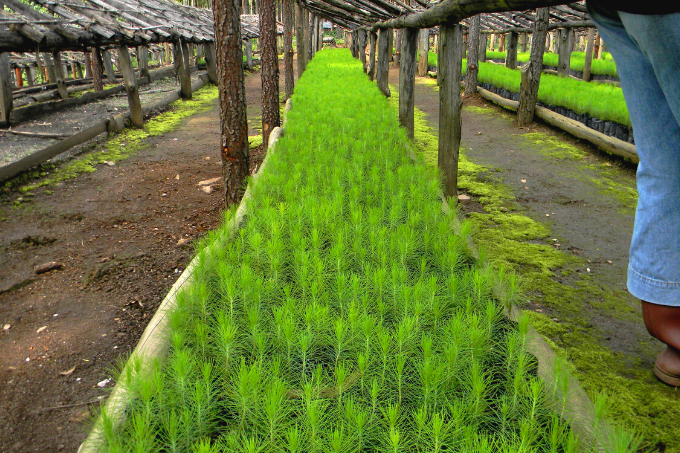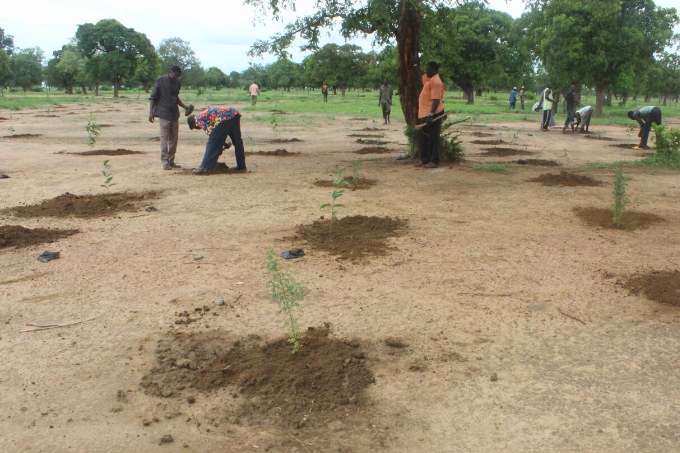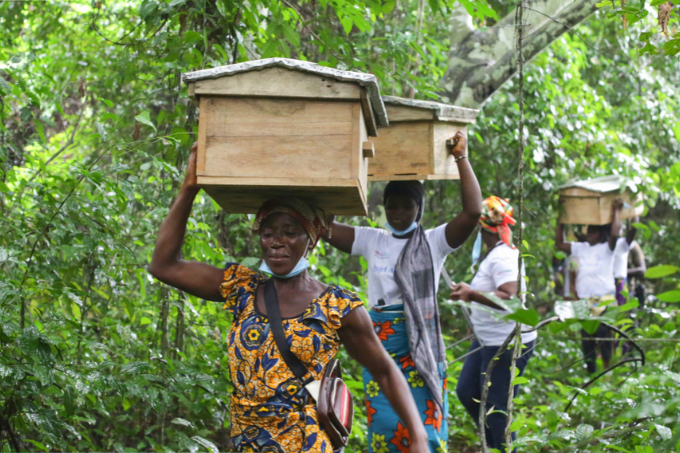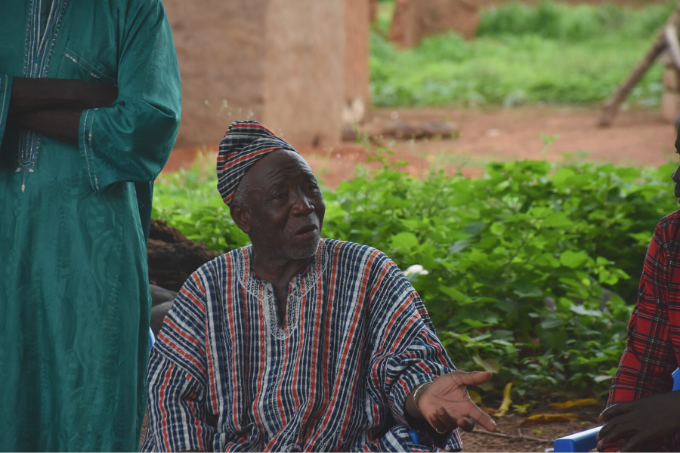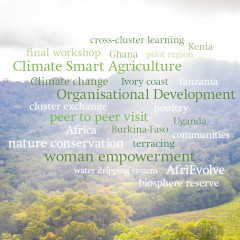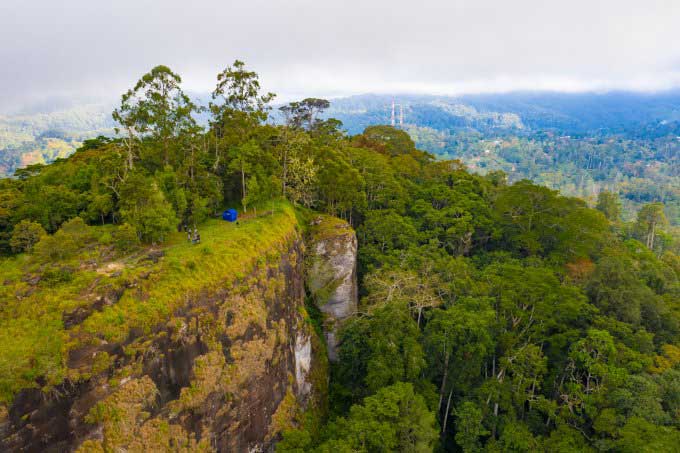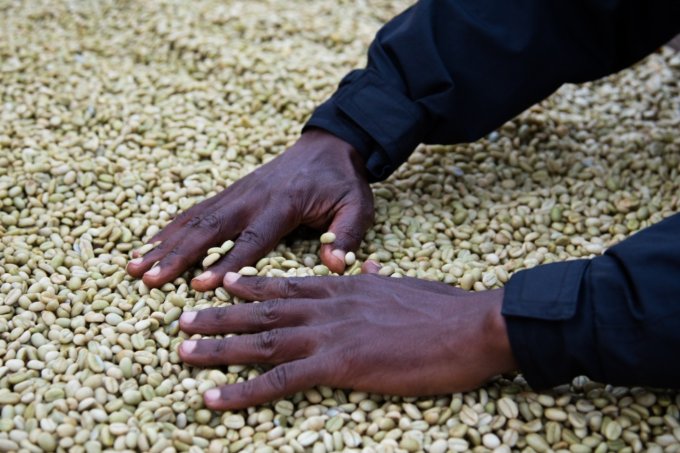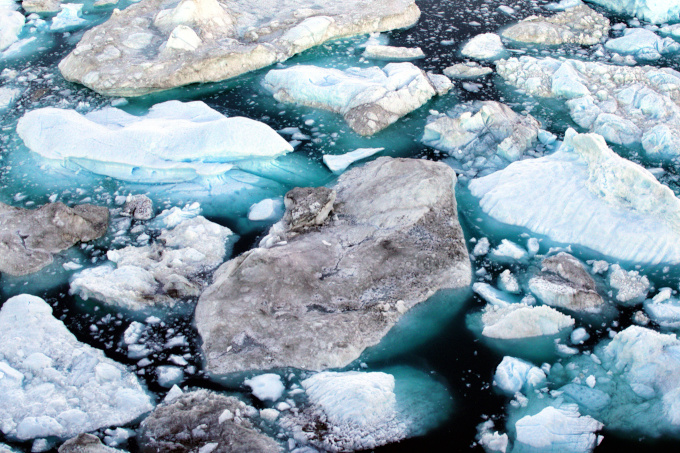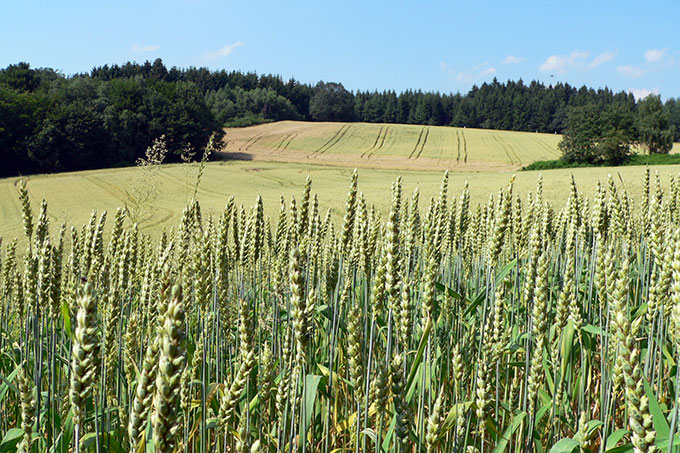AfriEvolve
Capacity development for green NGOs in Africa
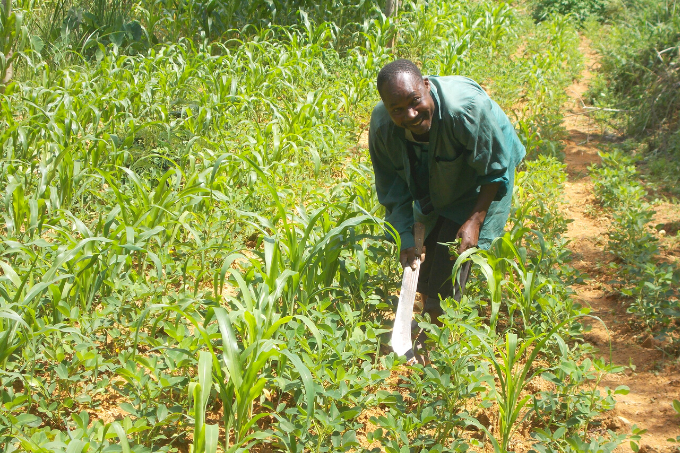
Agriculture is the livelihood for many rural families in our African project regions - photo: Nature Kenya
NGOs often play a critical role in civil society worldwide. They advocate for the interests and needs of local communities and minorities and secure access and maintenance of natural livelihoods. Nevertheless, local NGOs in Africa often face challenges: Restrictive national NGO laws often prohibit political involvement and restrict fund access. Consequently, many NGOs are struggling to secure long-term funding and see their influence on political decision makers for conservation topics limited – both at national and regional level. To strengthen NGOs in Africa, NABU and six green NGOs from West and East Africa are setting up regional cluster networks for enhancing organisational development and capacity building.
All six African NGOs work at the focal point between conservation in and around protected areas and the needs for livelihoods of local people. In particular, land use of all kinds lead to permanent conflicts between local communities and the respective protected area management, as well as to increasing pressure on wildlife, forests, water bodies and other habitats. The effects of climate change such as heavy rain falls, unexpected frost, extreme dry spells and erosion are exacerbating poor harvests and crop failures. This in turn results in poverty and increased dependency of people on the natural resources of their environment. The way forward here is the conversion of current land use to sustainable forms taking impacts of climate change into consideration so that yields can be stabilised and livelihoods secured. Therefore, the six partner NGOs are introducing Climate Smart Agriculture (CSA) with local farmers at six selected sites.
-
Establishing of micro-composting systems in the terraces at Amani Nature Reserve in Tanzania - photo: Nature Tanzania
-
The Yala delta provides 250,000 farmers vital resources such as fish, papyrus and wood - photo: Nature Kenya
-
Seedlings are cultivated in local tree nurseries in the Echuya Forest Reserve in Uganda to establish sustainable agro forestry systems in the mountainous areas of Uganda - photo: Nature Uganda
-
Planting native tree species strengthens climate resilience of ecosystems, which increases agricultural yields and secures livelihoods in regions threatened by desertification - photo: Fondation NATURAMA
-
In Azagny National Park, beekeeping is an alternative source of income for local communities. Besides beekeeping, oil palm, rubber, coconut and coffee are grown in the forests - photo: SOS-Forêts
-
To successfully implement measures for environmental and climate protection, a close and trustful cooperation with the local authorities is formed to incorporate their interests - photo: Ghana Wildlife Society
Project facts
Project title
AfriEvolve - capacity development for green NGOs in Africa
Countries
East Africa: Kenya, Tanzania, Uganda
West Africa: Ghana, Côte d'Ivoire, Burkina Faso
Period
February 2021 to December 2023
Partners
Fondation NATURAMA (West Africa cluster coordinator), Nature Kenya (East Africa cluster coordinator), Ghana Wildlife Society, Nature Uganda, SOS-Forêts, Nature Tanzania
Sponsored by / Supported by
The project is supported by the German Federal Ministry for Economic Cooperation and Development (BMZ) and NABU
Advised by / Regulated by
BirdLife International, Consultative Group for International Agricultural Research (CGIAR), Food and Agriculture Organization (FAO), Potsdam Institute for Climate Impact Research (PIK)
With this project we are contributing to the following SDGs
SDG 1, SDG 2, SDG 4, SDG 5, SDG 7, SDG 12, SDG 13, SDG 15 and SDG 17.
Project Activities
AfriEvolve is conceived as a pan-African co-support platform facilitating peer-to-peer learning exchanges and aiming to emulate south-south mentoring capacity building among its members. The activities of the project contribute to newly gain organisational development skills and portfolio expertise on Climate-Smart Agriculture for improving civil society cooperation and smallholder farming resilience.
1. Organisational Development/ Capacity Building
Organisational development is a strategic process that enables institutions to improve their performance and effectiveness through systematic and structural changes in the organisation. To achieve this, strategies, structures and processes are developed, improved, adapted and strengthened. This enables NGOs to effectively provide services to its various partners and stakeholders and to achieve their goals more successfully, such as the improvement of people's livelihood and more influential nature conservation. The aim is to achieve continuous learning structures within the organisation that can adapt to the challenges of a dynamic system. With Afrievolve, capacities of the partner NGOs are planned to be further developed by:
- Tailored training with digital cross-cluster modules
- South to South cooperation with cluster-specific peer-to-peer exchange and twinning coaching
2. Climate Smart Agriculture (CSA)
Climate Smart Agriculture is a sustainable approach conceived to transform and reorient agricultural systems for tackling current food security and climate change challenges in a joint and synergistic fashion. CSA is designed to be a pathway towards development and food security built on three pillars: increasing productivity and incomes, enhancing resilience of livelihoods and ecosystems and reducing, and removing greenhouse gas emissions from the atmosphere. With AfriEvolve, CSA competencies will be increased by:
- Tailored training with cross-cluster digital modules
- Mutual learning facilitation with cluster-specific peer-to-peer on-site practical learning and exchange visits
- Pilot case study implementation (see case studies details below)
Case studies
Yala Swamp, Kenya
The Yala Delta is situated at the North-Eastern end of the Lake Victoria and is Kenya's largest freshwater wetland with 20,756 ha. The ecosystem is a Key Biodiversity Area (KBA) classified by BirdLife International among Kenya’s 60 important Bird Areas. The papyrus swamps are home to rare blue-breasted bee-eater (Merops variegatus) and papyrus gonolek (Laniarius mufumbiri), among others. The wetland acts as a critical filter for water inflow into Lake Victoria. The delta provides 250,000 farmers in its vicinity with vital resources such as fish, papyrus and timber. However, Yala's ability to function is severely threatened by the establishment of large-scale agricultural enterprises by foreign investors and the overexploitation of its natural resources.
Echuya Forest Reserve, Uganda
The Echuya Forest Reserve is a highland forest area at an altitude of 2,570 m in the heart of the biodiversity rich Albertine Rift in western Uganda, covering about 4,000 ha. The habitat is categorised by BirdLife as an important Bird Area because of the high diversity of bird species, some of which are globally threatened and endemic. Echuya is located in one of the most densely populated and poorest agricultural regions of Uganda. The long-term preservation of the reserve depends directly on the surrounding population.
Amani Natural Forest Reserve, Tanzania
The Usambara Mountains are located in the north-east of Tanzania, not far from the Indian Ocean coast and the border with Kenya, in the Tanga region. The mountains are partly still covered with remnants of very old (> 30 million years) forests and are of outstanding importance for nature and species conservation. At the same time, the forests (a biosphere reserve and Amani Nature Reserve since 1997) are under heavy pressure from high population density due to logging, unsustainable agriculture, invasive species, gold mining and climate change.
Sourou Valley, Burkina Faso
The Sourou Valley is a river valley on the border with Mali with a total area of 20,926 ha. The valley consists of broad floodplain marshes and acacia forests. Large parts of the area are dominated by agricultural land, where only trees of economic value remain. The valley is an Important Bird Area (IBA), but the natural resources are under considerable pressure. The loss of floodplain forests due to agriculture, firewood collection, especially for fish smoking, and unsustainable fishing are damaging the area with its important ecosystem services in the long term. Poor soils and resulting low yields lead to deforestation, which further increases degradation.
Azagny Nationalpark, Côte d’Ivoire
The Azagny National Park extends 100 km west of Abidjan over 21,850 ha along the coast of the Gulf of Guinea. With lagoons, evergree n (primary) forests, dry and wet coastal savannah, wetlands and mangrove areas, the park offers around 134 plant species and rare, endangered a nimal species such as forest elephant (Loxodonta africana cyclotis), chimpanzee (Pan troglodytes verus) , pygmy hippopotamus (Choeropsis liberiensis), West African manatee (Trichechus senegalensis) and royal antelope (Neotrapus pygmaeus). Like the coastal region in general, the park is threatened by the increasing influx of migrants and thus increasing pressure of exploitation (e.g. wild meat, rattan, raffia, mangroves), also in the protection and buffer zone.
Mognori in Mole-Nationalpark, Ghana
The Mognori village is located in North-Western Ghana, on the edge of Mole National Park. The natural vegetation consists of open savannah forests, which have been severely affected by cattle grazing, poaching, shifting cultivation and "slash and bur n" for land cultivation. The park is ornithologically significant and an important wintering area for many migratory bird species. Besides that, vario us mammal species such as the African elephant (Loxodonta africana), lion (Panthera leo), leopard (Panthera pardus) and the bohor reedbuck (Redunca redunca). The approximately 41,000 inhabitants of Mognori live mainly from the resources of their surroundings and small-scale agriculture.
Download our final report
The AfriEvolve final report includes an outline of the project, an overview of the content shared in a peer-to-peer online seminar on organisational development and climate-smart agriculture, and a lessons-learned section on the climate-smart pilot projects in each of the 6 partner countries.
AfriEvolve final reportrelated topics
Knowledge building, empowerment and climate-adapted agriculture: These are the core principles of the project AfriEvolve, coordinated by NABU. Its implementation is taking place in six African countries, including Tanzania and Ivory Coast. Our partners provide insights into their daily work. more →
NABU promotes sustainable regional development worldwide. Our international projects always include income-generating activities, which comprehensively address all three dimensions of sustainability - balancing economy, ecology and social equality. more →
Climate change and biodiversity loss are the most pressing challenges to humanity. Finally, people start to realize they are both sides of the same coin. NABU stands with science. We demand and support all efforts to reach a net-zero carbon economy globally. more →

